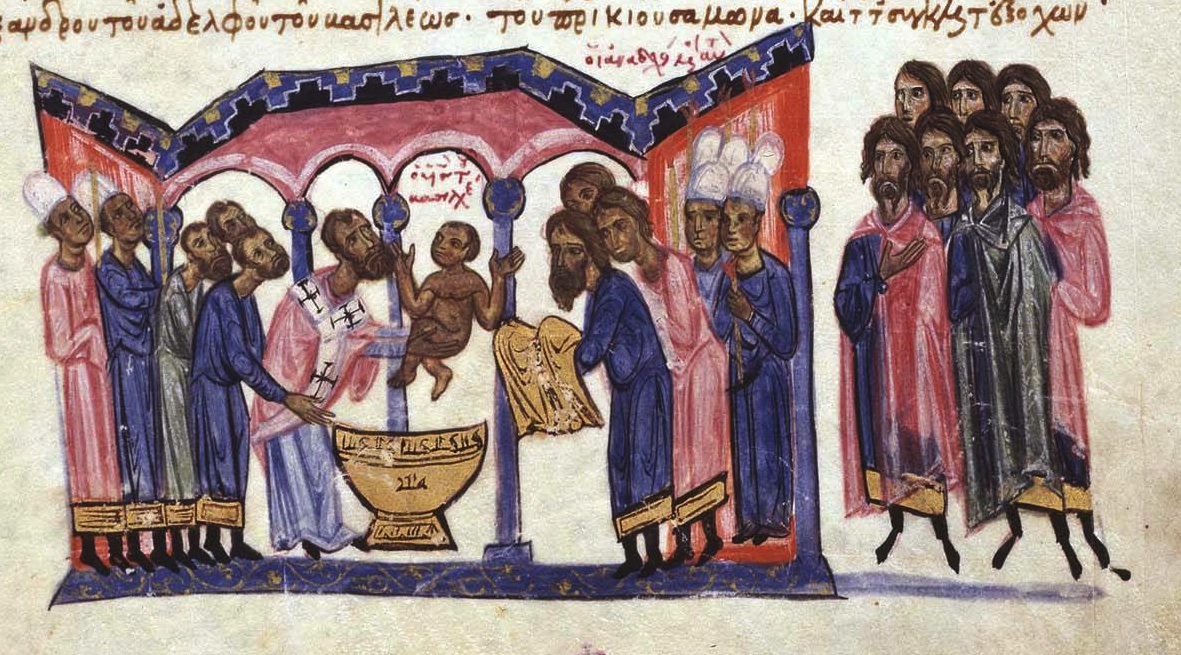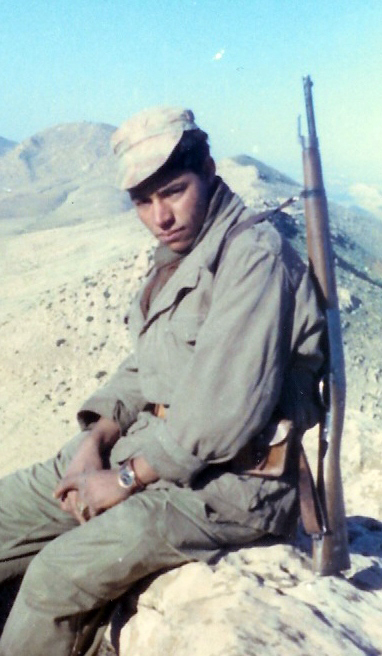|
Horka (title)
Horka,Tamás Hölbling, A honfoglalás forráskritikája I. – A külföldi kútfők, Ad Librum Kiadó, 2010, p. 263 or harka, was a title used by the Magyar tribes in the 9th and 10th centuries. According to Byzantine Emperor Constantine Porphyrogenetos in ''De administrando imperio'', the horka had judicial authority. However, in other sources, the term was applied to a military leader (such as Bulcsú, who led the Magyar forces at the Battle of Lechfeld). Certainly at some point in the 10th century, the roles of horka and gyula (the chief warlord) had become similar, with the horka having authority in Western Transdanubia and the gyula in Transylvania in the east. In later sources the word appears, only as a personal name. The title is somewhat similar to word harki ''Harki'' (adjective from the Arabic ''harka'', standard Arabic ''haraka'' حركة, "war party" or "movement", i.e., a group of volunteers, especially soldiers) is the generic term for native Muslim Algeri ... [...More Info...] [...Related Items...] OR: [Wikipedia] [Google] [Baidu] |
Magyars
Hungarians, also known as Magyars ( ; hu, magyarok ), are a nation and ethnic group native to Hungary () and historical Hungarian lands who share a common culture, history, ancestry, and language. The Hungarian language belongs to the Uralic language family. There are an estimated 15 million ethnic Hungarians and their descendants worldwide, of whom 9.6 million live in today's Hungary. About 2–3 million Hungarians live in areas that were part of the Kingdom of Hungary before the Treaty of Trianon in 1920 and are now parts of Hungary's seven neighbouring countries, Slovakia, Ukraine, Romania, Serbia, Croatia, Slovenia, and Austria. Significant groups of people with Hungarian ancestry live in various other parts of the world, most of them in the United States, Canada, Germany, France, the United Kingdom, Chile, Brazil, Australia, and Argentina. Hungarians can be divided into several subgroups according to local linguistic and cultural characteristics; subgroups with distinct ... [...More Info...] [...Related Items...] OR: [Wikipedia] [Google] [Baidu] |
Byzantine
The Byzantine Empire, also referred to as the Eastern Roman Empire or Byzantium, was the continuation of the Roman Empire primarily in its eastern provinces during Late Antiquity and the Middle Ages, when its capital city was Constantinople. It survived the fragmentation and fall of the Western Roman Empire in the 5th century AD and continued to exist for an additional thousand years until the fall of Constantinople to the Ottoman Empire in 1453. During most of its existence, the empire remained the most powerful economic, cultural, and military force in Europe. The terms "Byzantine Empire" and "Eastern Roman Empire" were coined after the end of the realm; its citizens continued to refer to their empire as the Roman Empire, and to themselves as Romans—a term which Greeks continued to use for themselves into Ottoman times. Although the Roman state continued and its traditions were maintained, modern historians prefer to differentiate the Byzantine Empire from Ancient Rome a ... [...More Info...] [...Related Items...] OR: [Wikipedia] [Google] [Baidu] |
Constantine VII
Constantine VII Porphyrogenitus (; 17 May 905 – 9 November 959) was the fourth Emperor of the Macedonian dynasty of the Byzantine Empire, reigning from 6 June 913 to 9 November 959. He was the son of Emperor Leo VI and his fourth wife, Zoe Karbonopsina, and the nephew of his predecessor Alexander. Most of his reign was dominated by co-regents: from 913 until 919 he was under the regency of his mother, while from 920 until 945 he shared the throne with Romanos Lekapenos, whose daughter Helena he married, and his sons. Constantine VII is best known for the ''Geoponika'' (τά γεοπονικά), an important agronomic treatise compiled during his reign, and three, perhaps four, books; ''De Administrando Imperio'' (bearing in Greek the heading Πρὸς τὸν ἴδιον υἱὸν Ῥωμανόν), '' De Ceremoniis'' (Περὶ τῆς Βασιλείου Τάξεως), '' De Thematibus'' (Περὶ θεμάτων Άνατολῆς καὶ Δύσεως), and ''Vita Basilii'' ( ... [...More Info...] [...Related Items...] OR: [Wikipedia] [Google] [Baidu] |
De Administrando Imperio
''De Administrando Imperio'' ("On the Governance of the Empire") is the Latin title of a Greek-language work written by the 10th-century Eastern Roman Emperor Constantine VII. The Greek title of the work is ("To yown son Romanos"). It is a domestic and foreign policy manual for the use of Constantine's son and successor, the Emperor Romanos II. It is a prominent example of Byzantine encyclopaedism. Author and background The emperor Constantine VII “Porphyrogenitus” (905–959) was only surviving son of the emperor Leo VI the Wise (886–912). Leo VI gave the crown to young Constantine VII in 908 and he became the co-emperor. Leo VI died in May 912, and his brother and co-emperor Alexander became the ruler of Constantinople, but Alexander died in 913. Constantine VII was too young to rule on his own, and the governorship was created. Later in May 919 Constantine VII married Helena Lekapene, daughter of Romanos Lekapenos. In December 920, Romanos I Lekapenos (920–944) wa ... [...More Info...] [...Related Items...] OR: [Wikipedia] [Google] [Baidu] |
Bulcsú
Bulcsú (or Vérbulcsú; died 10 August 955) was a Hungarian chieftain, one of the military leaders of prince Taksony of Hungary, a descendant of Árpád. He held the title of horka. He was one of the most important figures of the Hungarian invasions of Europe. During these military campaigns, the Magyars threatened much of Western Europe; therefore a common saying at that time was ''"A sagittis Hungarorum, libera nos Domine"'' (Lord, save us from the arrows of the Hungarians") Modena, 925 CE . After his army had lost the disastrous Battle of Lechfeld The Battle of Lechfeld was a series of military engagements over the course of three days from 10–12 August 955 in which the Kingdom of Germany, led by King Otto I the Great, annihilated the Hungarian army led by '' Harka '' Bulcsú and the ch ... in 955, he was caught by the German victors and executed.Csorba, Csaba. ''Árpád népe'', Tudomány – Egyetem, Kulturtrade Kiadó. Budapest, 1997. References 955 deaths ... [...More Info...] [...Related Items...] OR: [Wikipedia] [Google] [Baidu] |
Battle Of Lechfeld
The Battle of Lechfeld was a series of military engagements over the course of three days from 10–12 August 955 in which the Kingdom of Germany, led by King Otto I the Great, annihilated the Hungarian army led by '' Harka '' Bulcsú and the chieftains Lél and Súr. With the German victory, further invasions by the Magyars into Latin Europe were ended. The Hungarians invaded the Duchy of Bavaria in late June or early July 955 with 8,000–10,000 horse archers, infantry, and siege engines, intending to draw the main German army, under Otto I, into battle in the open field and destroy it. The Hungarians laid siege to Augsburg on the river Lech. Otto I advanced to relieve the city with an army of 8,000 heavy cavalry, divided into eight legions. As Otto I approached Augsburg on 10 August, a Hungarian surprise attack destroyed the Duchy of Bohemia rearguard legion. The Hungarian force stopped to plunder the German camp and Conrad, Duke of Lorraine led a counter-attack with heavy ca ... [...More Info...] [...Related Items...] OR: [Wikipedia] [Google] [Baidu] |
Gyula (title)
''Gyula'' (Yula, Gula, Gila) was, according to Muslim and Byzantine sources, the title of one of the leaders, the second in rank, of the Magyar tribes, Hungarian tribal federation in the 9th–10th centuries. In the earliest Hungarian sources, the title name is only recorded as a personal name (''Gyyla'', ''Geula'', ''Gyla'', ''Iula''). According to the Hungarian chronicles, Transylvania was ruled by a line of princes called Gyula, and their country was occupied by King Stephen I of Hungary (1000/1001–1038). Etymology The title name has not convincing Etymology, etymologies, but it is probably of Turkic languages, Turkic origin, cf. *''yula'' "torch". The ''gyula''s in the 9th century The first data of the title, recorded by Ibn Rusta and Gardizi, can be traced back to the earlier works of Abu Abdallah al-Jayhani. According to these earliest pieces of evidence, the Hungarians were ruled conjointly by two ‘kings’. The major one, called ''kende'' (or ''künde''), enjoyed n ... [...More Info...] [...Related Items...] OR: [Wikipedia] [Google] [Baidu] |
Transylvania
Transylvania ( ro, Ardeal or ; hu, Erdély; german: Siebenbürgen) is a historical and cultural region in Central Europe, encompassing central Romania. To the east and south its natural border is the Carpathian Mountains, and to the west the Apuseni Mountains. Broader definitions of Transylvania also include the western and northwestern Romanian regions of Crișana and Maramureș, and occasionally Banat. Transylvania is known for the scenery of its Carpathian landscape and its rich history. It also contains Romania's second-largest city, Cluj-Napoca, and other iconic cities and towns such as Brașov, Sibiu, Târgu Mureș, Alba Iulia and Sighișoara. It is also the home of some of Romania's List of World Heritage Sites in Romania, UNESCO World Heritage Sites such as the villages with fortified churches in Transylvania, Villages with fortified churches, the Historic Centre of Sighișoara, the Dacian Fortresses of the Orăștie Mountains and the Rosia Montana Mining Cultural Landsc ... [...More Info...] [...Related Items...] OR: [Wikipedia] [Google] [Baidu] |
Harki
''Harki'' (adjective from the Arabic ''harka'', standard Arabic ''haraka'' حركة, "war party" or "movement", i.e., a group of volunteers, especially soldiers) is the generic term for native Muslim Algerian who served as auxiliaries in the French Army during the Algerian War of Independence from 1954 to 1962. The word sometimes applies to all Algerian Muslims (thus including civilians) who supported French Algeria during the war. The motives for enlisting were mixed. They are regarded as traitors in independent Algeria and thousands were killed after the war in reprisals despite the Évian Accords ceasefire and amnesty stipulations. In France the term can apply to ''Franco-musulmans rapatriés'' (repatriated French Muslims) living in the country since 1962 - and to their metropolitan-born descendants. In this sense, the term ''Harki'' refers to a social group - a fraction of the French Muslims from Algeria - as distinct from other French of Algerian origin, or from Algerians ... [...More Info...] [...Related Items...] OR: [Wikipedia] [Google] [Baidu] |



